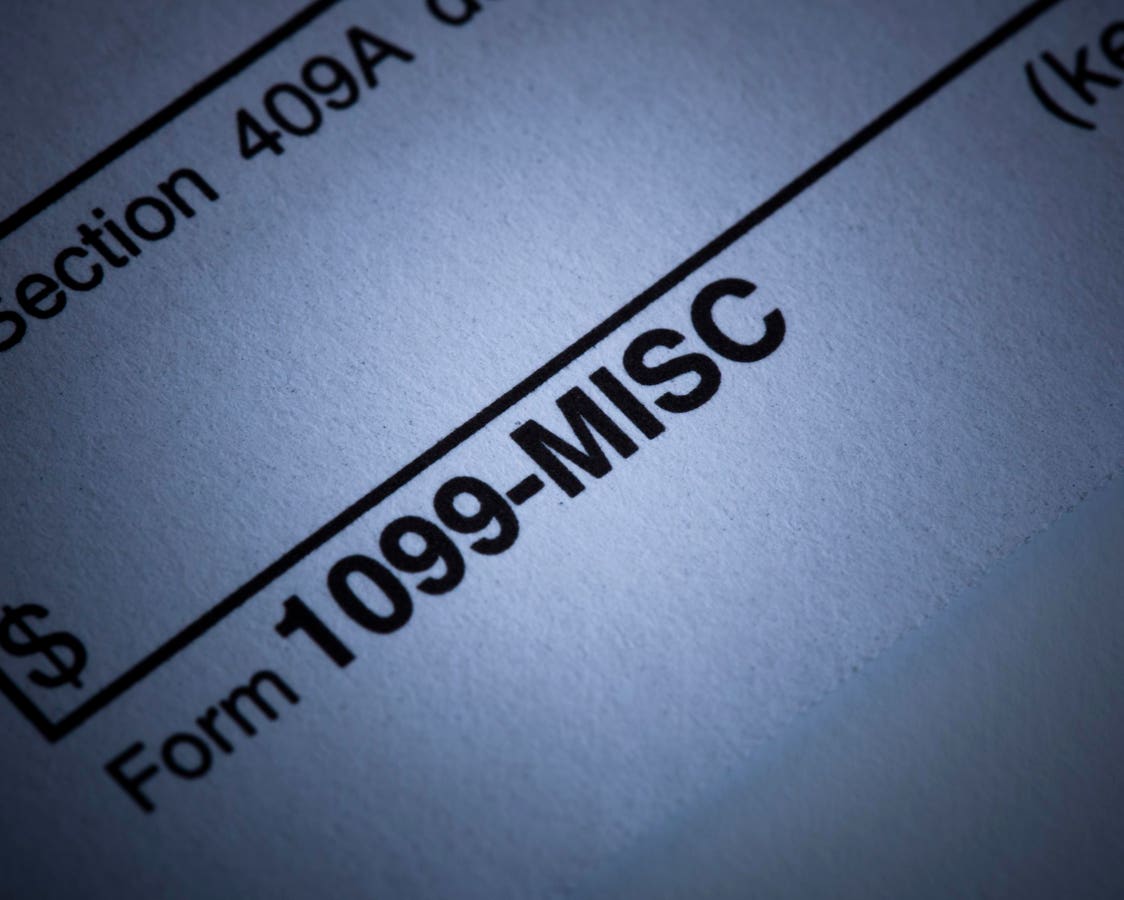Money
IRS Forms 1099 Can Be Wrong, Here’s What You Can Do About It

Understanding the Risks of Incorrect IRS Forms 1099
When dealing with taxes, few things can be as unsettling as receiving an incorrect IRS Form 1099. These forms are a critical part of the tax reporting process, as they detail income that must be reported to the IRS. While the IRS expects you to report all income you’ve earned, regardless of whether you receive a Form 1099, these forms act as a reminder—or even a warning—to ensure you don’t overlook any payments. However, if the information on the form is wrong, it can create significant headaches and potential tax liabilities. For instance, imagine receiving a Form 1099 showing $300,000 in income when you actually earned only $30,000. The discrepancy could lead to confusion, anxiety, and even audits if not addressed properly.
How to Address an Incorrect Form 1099
If you find yourself in the situation where a Form 1099 is incorrect, it’s crucial to act promptly. The first step is to contact the issuer of the form—whether it’s an employer, client, or another payor—and explain the error. Provide documentation to support your claim, such as invoices, contracts, or bank statements, to prove the correct amount you were paid. If the issuer agrees that the form was incorrect, they may be able to destroy the erroneous form and issue a corrected one. However, it’s important to keep a written record of this interaction, including any correspondence or agreements. Request a formal letter from the issuer stating that the incorrect form was destroyed and that a corrected version was issued. This documentation could be vital if the IRS later questions the discrepancy.
Corrected Forms 1099 and IRS Procedures
If the issuer has already sent the incorrect Form 1099 to the IRS, the situation becomes a bit more complicated. In this case, the issuer should issue a corrected Form 1099, marking the “corrected” box on the new form. This corrected form should ideally cancel out the original one in the IRS’s system. However, it’s important to note that this process can take time, and the IRS may not immediately update their records. To protect yourself, maintain a copy of the corrected form and any communication with the issuer. If the IRS later questions the income reported, you’ll have the necessary documentation to resolve the issue.
Reporting the Error on Your Tax Return
If the issuer refuses to correct the Form 1099 or if you’re unable to resolve the issue with them, you’ll need to address the error when filing your tax return. For example, if your Form 1099 incorrectly shows $300,000 in income but you only earned $30,000, you can report the correct amount on your return. On Schedule C or Line 21 of your Form 1040, list the $30,000 and include a statement explaining the discrepancy. Your statement might look like this:
- Erroneous Form 1099-NEC: $300,000
- Less error amount: $270,000
- Net amount reported on Line 21: $30,000
This approach ensures that you’re reporting the correct income while also providing a clear explanation for the discrepancy. However, it’s important to note that this could increase your risk of being audited, as the IRS may notice the mismatch between the Form 1099 and your reported income. To minimize this risk, it’s essential to be thorough in your documentation and clear in your explanation.
The Risk of Audits and Legal Options
While addressing the error on your tax return is a viable solution, it does come with a trade-off: an increased risk of an audit. The IRS is more likely to scrutinize returns that include explanations or discrepancies, as they may suspect underreporting of income. However, failing to address the error at all could lead to even greater consequences, such as penalties or additional taxes on the unreported income.
In some cases, you may consider legal action against the issuer of the incorrect Form 1099, especially if the error is significant and the issuer refuses to cooperate. However, pursuing such a lawsuit is often costly and time-consuming, and the outcome is far from guaranteed. Additionally, the IRS generally avoids getting involved in disputes between private parties, so they won’t intervene on your behalf. As a result, legal action is rarely a practical solution for most taxpayers.
Preventing Future Issues with Clear Agreements
One of the best ways to avoid the hassle of incorrect Forms 1099 is to ensure that all agreements and contracts clearly outline the terms of payment and the issuance of these forms. For example, if you’re settling a lawsuit or entering into a consulting agreement, specify the exact amount of income that should be reported on the Form 1099. This level of detail can help prevent errors and reduce the risk of disputes down the line.
In conclusion, receiving an incorrect Form 1099 can be a stressful and challenging experience, but there are steps you can take to address the issue. By acting quickly, maintaining thorough documentation, and clearly explaining any discrepancies on your tax return, you can minimize the risk of audits and ensure that your taxes are accurate. While legal action is rarely the best option, taking proactive steps to prevent errors in the first place can save you a lot of trouble in the long run.


















